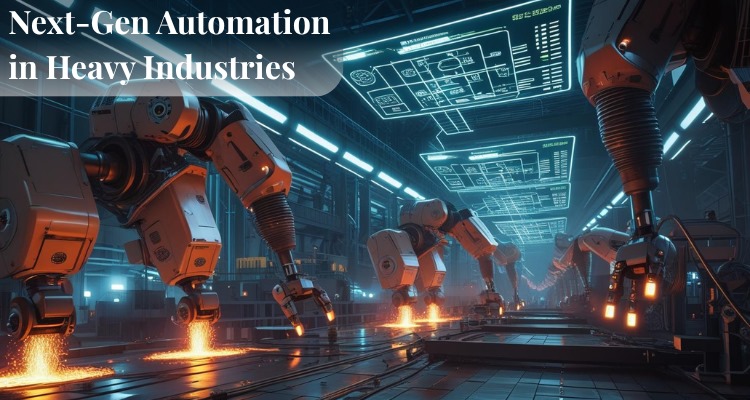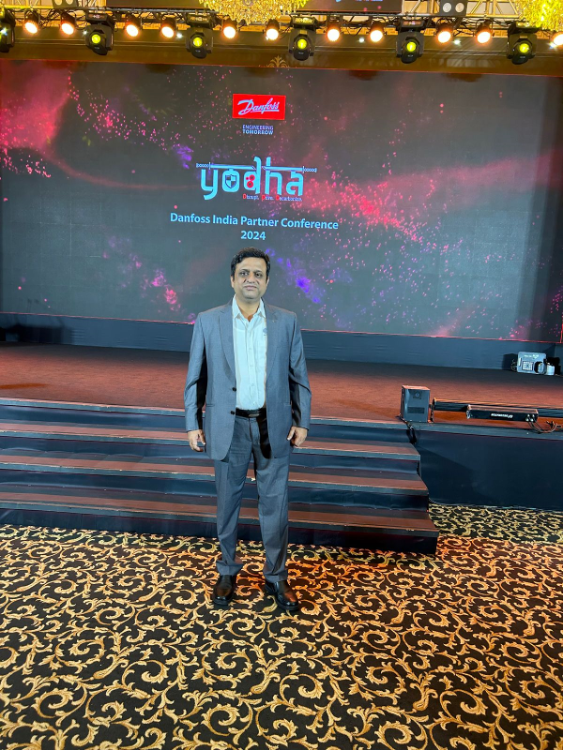In today’s fast-evolving industrial landscape, heavy industries such as steel, mining, power generation, and shipbuilding are under immense pressure to deliver higher efficiency, sustainability, and productivity. As global competition rises and operational challenges become more complex, next-generation automation technologies are emerging as a game changer for these industries.
This blog explores how advanced automation solutions are revolutionizing heavy industries and unlocking new opportunities for operational excellence.
The Changing Dynamics of Heavy Industries
Heavy industries are traditionally characterized by large-scale production, energy-intensive processes, and high dependence on manual labor. However, challenges such as fluctuating raw material costs, environmental regulations, and the need for real-time decision-making have pushed companies to adopt automation technologies that go beyond traditional systems.
Next-gen solutions like Industrial IoT (IIoT), Artificial Intelligence (AI), robotics, and advanced process controls are empowering businesses to optimize processes, improve safety, and ensure consistent product quality.
Key Next-Gen Automation Technologies Driving Change
1. Industrial IoT (IIoT)
IIoT connects machines, sensors, and systems to collect and analyze data in real-time. For heavy industries, IIoT provides:
- Predictive Maintenance: Identifying equipment issues before they lead to breakdowns.
- Energy Monitoring: Optimizing energy usage and reducing costs.
- Remote Operations: Allowing operators to monitor and control plants from anywhere.
2. Robotics and Advanced Robotics
Robotic systems are taking over hazardous, repetitive, and precision-based tasks. Benefits include:
- Enhanced worker safety in dangerous environments.
- Increased productivity with 24/7 operations.
- Greater precision and consistency in manufacturing processes.
3. Artificial Intelligence (AI) and Machine Learning (ML)
AI and ML algorithms analyze massive amounts of operational data to enable:
- Process Optimization: Continuously improving workflows.
- Anomaly Detection: Quickly identifying outliers and preventing costly mistakes.
- Demand Forecasting: Helping manufacturers plan production schedules better.
4. Advanced Process Control (APC)
APC systems are redefining process stability and efficiency in industries by:
- Reducing variability in production.
- Ensuring optimum usage of raw materials.
- Lowering emissions and meeting compliance targets.
Benefits of Next-Gen Automation in Heavy Industries
Increased Operational Efficiency
Automation minimizes manual intervention, reducing errors and boosting production rates.
- Improved Safety
By automating dangerous tasks, companies protect workers from potential hazards. - Cost Savings
Real-time monitoring and predictive maintenance help in reducing operational costs significantly. - Sustainability and Compliance
Automation enables better control over emissions and waste management, aligning with environmental goals. - Scalability
Next-gen systems make it easier to scale operations and adapt to market changes.
A Step Toward Sustainable and Smart Factories
With industries shifting towards Industry 4.0, the adoption of smart automation is no longer optional—it’s essential for survival and growth. Companies investing in these technologies are not only optimizing their operations but also contributing to a more sustainable and future-ready industrial ecosystem.
How Softcon is Driving the Change
At Softcon Systems, we specialize in designing and implementing advanced automation solutions for heavy industries. Our expertise in end-to-end process automation, IIoT integration, and turnkey projects helps clients achieve operational excellence and stay ahead in the competitive global market.
Are you ready to transform your heavy industry operations?
Connect with us today to explore how our automation solutions can empower your business for the future.
Visit: www.softcon.net.in





